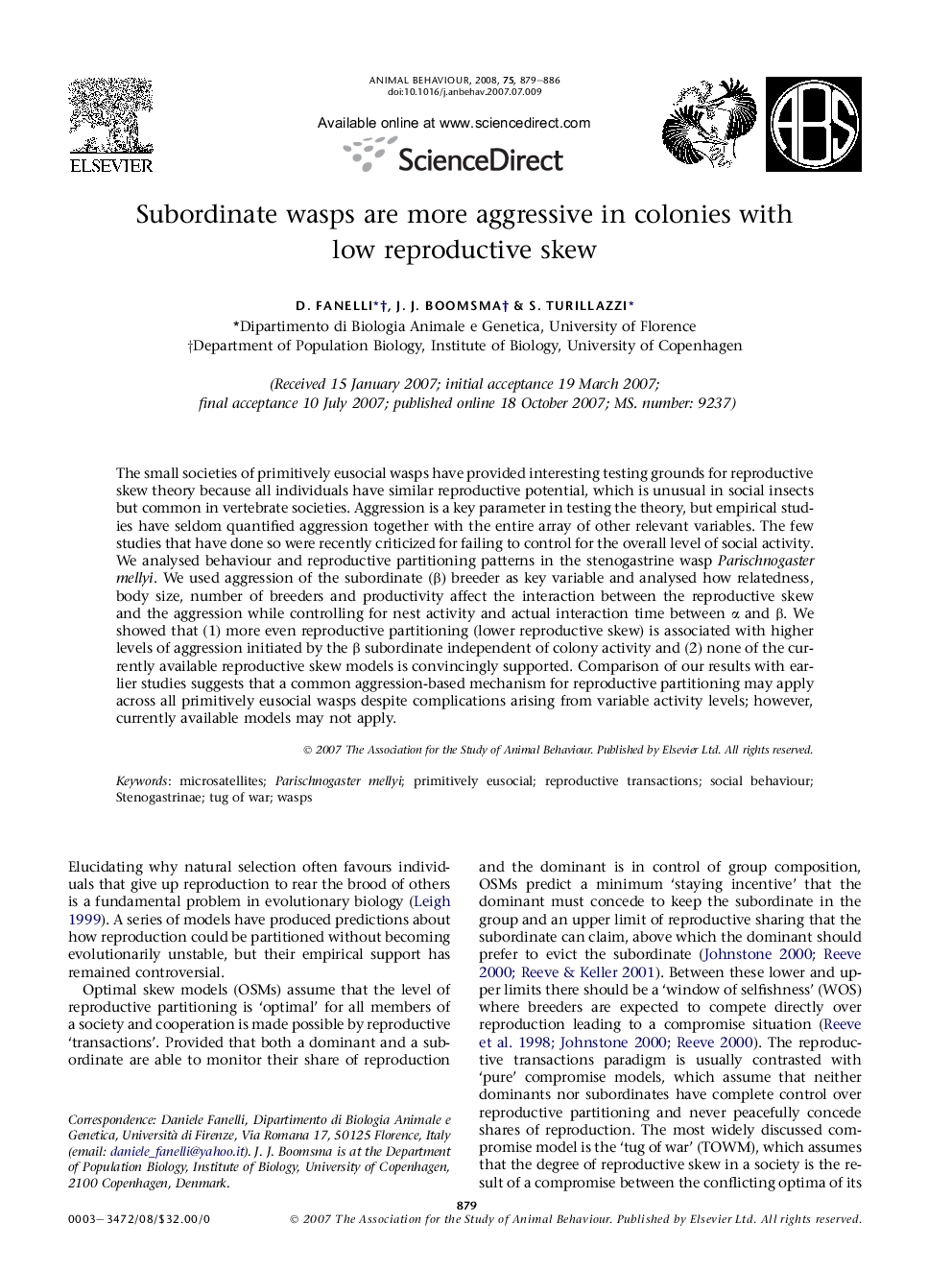| کد مقاله | کد نشریه | سال انتشار | مقاله انگلیسی | نسخه تمام متن |
|---|---|---|---|---|
| 2418909 | 1104360 | 2008 | 8 صفحه PDF | دانلود رایگان |

The small societies of primitively eusocial wasps have provided interesting testing grounds for reproductive skew theory because all individuals have similar reproductive potential, which is unusual in social insects but common in vertebrate societies. Aggression is a key parameter in testing the theory, but empirical studies have seldom quantified aggression together with the entire array of other relevant variables. The few studies that have done so were recently criticized for failing to control for the overall level of social activity. We analysed behaviour and reproductive partitioning patterns in the stenogastrine wasp Parischnogaster mellyi. We used aggression of the subordinate (β) breeder as key variable and analysed how relatedness, body size, number of breeders and productivity affect the interaction between the reproductive skew and the aggression while controlling for nest activity and actual interaction time between α and β. We showed that (1) more even reproductive partitioning (lower reproductive skew) is associated with higher levels of aggression initiated by the β subordinate independent of colony activity and (2) none of the currently available reproductive skew models is convincingly supported. Comparison of our results with earlier studies suggests that a common aggression-based mechanism for reproductive partitioning may apply across all primitively eusocial wasps despite complications arising from variable activity levels; however, currently available models may not apply.
Journal: Animal Behaviour - Volume 75, Issue 3, March 2008, Pages 879–886